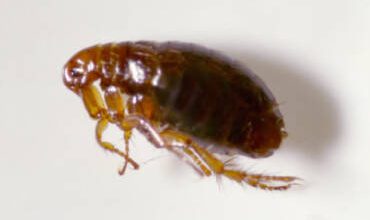Understanding Alcohol’s Metabolism for Probation Urine Tests
When someone is on probation, they may be required to undergo regular drug testing, including urine tests, to ensure they are adhering to the terms of their probation. These tests typically screen for illegal drugs and alcohol. If you or someone you know is subject to a probation urine test, understanding how alcohol is metabolized by the body and how long it remains detectable in urine can be essential.
Alcohol metabolism is a complex biological process, and its detection in urine depends on various factors. This blog will delve into the intricacies of alcohol metabolism, the factors that influence how long alcohol stays in the system, and what probationers need to know to avoid violations related to alcohol use.
How long does alcohol stay in your urine for a probation test?
You should also know how long does alcohol stay in your urine for a probation test? Alcohol can typically be detected in urine for up to 12 to 48 hours after consumption, depending on several factors, including the amount consumed, individual metabolism, and overall health. However, in some cases, advanced testing methods, such as ethyl glucuronide (EtG) tests, can detect alcohol for up to 80 hours or more after ingestion.
For standard urine tests, alcohol itself may clear from the system relatively quickly, often within a day. However, if someone has been drinking heavily or regularly, metabolites can linger longer, making detection more likely. Individual factors, such as age, body weight, hydration level, and liver health, also play a crucial role in how long alcohol remains detectable.
During probation, individuals may be subjected to random urine tests to ensure compliance with sobriety requirements. It’s essential to note that even if alcohol is no longer felt or recognized in one’s system, it can still be detected in urine, impacting probation status. For anyone facing probation or similar legal circumstances, abstaining from alcohol is the safest strategy to avoid potential violations.
What Is Alcohol Metabolism?
When alcohol is consumed, it is absorbed into the bloodstream through the stomach and small intestine. From there, it is transported to the liver, where the majority of alcohol metabolism occurs. The liver uses a group of enzymes to break down alcohol, primarily alcohol dehydrogenase (ADH) and aldehyde dehydrogenase (ALDH). Here’s a simplified look at how alcohol is metabolized:
- Absorption: After ingestion, alcohol is absorbed into the bloodstream, typically reaching the bloodstream within minutes.
- Metabolism: Once in the bloodstream, alcohol is transported to the liver, where enzymes like ADH and ALDH break it down. ADH converts alcohol into acetaldehyde, a toxic substance that is then converted by ALDH into acetic acid, which is harmless and used by the body for energy.
- Excretion: The byproducts of alcohol metabolism (mainly acetic acid) are then excreted through urine, sweat, and breath. Some alcohol, however, is not fully metabolized and is eliminated directly through the breath (which is measured by breathalyzer tests) and urine.
Alcohol is metabolized at a relatively consistent rate, approximately 0.015% Blood Alcohol Concentration (BAC) per hour. This rate can be influenced by various factors, but understanding this process is key in determining how long alcohol stays in the body and how long it may be detectable in a probation urine test.
How Long Does Alcohol Stay in the System?
The detection window for alcohol in the system varies, but it generally depends on factors like the amount of alcohol consumed, body weight, metabolism, and hydration levels. After alcohol is consumed, it takes time for the body to process and eliminate it. Alcohol can be detected in urine, blood, and breath, but the time it remains detectable is different in each medium.
1. Urine Tests for Alcohol:
Urine tests are commonly used for alcohol detection in probation settings. While alcohol itself doesn’t stay in urine as long as other substances, it can be detected in urine in various ways:
- Ethanol (Alcohol): Alcohol itself typically remains detectable in urine for up to 12 hours after consumption. However, this can vary depending on factors such as how much alcohol was consumed and individual metabolism.
- Ethyl Glucuronide (EtG): EtG is a biomarker produced when alcohol is metabolized in the liver. It can be detected in urine for much longer than alcohol itself, often up to 48–80 hours after drinking. EtG tests are commonly used in probation urine tests because they can detect alcohol consumption even if the individual has stopped drinking for some time.
The type of test used will influence how long alcohol can be detected. Standard ethanol tests have a shorter detection window than EtG tests, which can capture alcohol consumption over a more extended period.
2. Breath and Blood Tests:
Breathalyzer tests, commonly used for roadside testing and in some probation settings, measure the amount of alcohol in the breath. Alcohol is eliminated through the breath, and the rate of elimination is about 0.015% BAC per hour. For example, if a person has a BAC of 0.08% (the legal limit for driving), it could take about 5–6 hours for alcohol to be fully eliminated from their system.
Blood tests also detect alcohol, and like breath tests, they typically show alcohol for a few hours after consumption. Blood alcohol concentration is used to measure intoxication levels but is not commonly used for long-term detection in probation tests.
Factors That Influence Alcohol Metabolism and Detection:
Several factors influence how quickly alcohol is metabolized and how long it stays in the system, including:
1. Body Weight and Composition:
A person’s weight and body composition can have a significant impact on how alcohol is processed. People with higher body fat percentages tend to retain alcohol for longer because alcohol is water-soluble and is absorbed more slowly in fatty tissue. In contrast, individuals with more muscle mass may metabolize alcohol more quickly.
2. Metabolism Rate:
Metabolism rates vary from person to person, depending on factors such as genetics, liver health, age, and overall metabolic function. Some people naturally metabolize alcohol more quickly than others, while some may take longer to process it, affecting how long it stays detectable in their urine.
3. Amount of Alcohol Consumed:
The more alcohol consumed, the longer it will take for the body to metabolize and eliminate it. Heavy drinking or binge drinking increases the volume of alcohol in the system, which prolongs the detection window. For example, someone who drinks a large amount of alcohol over a short period may test positive for alcohol in a urine test much longer than someone who consumed a small amount.
4. Hydration Levels:
Alcohol dehydrates the body, and dehydration can influence how alcohol is metabolized and excreted. Those who are well-hydrated may expel alcohol more quickly through urine. On the other hand, dehydration can slow the elimination process, potentially extending the amount of time alcohol remains detectable in the system.
5. Liver Health:
The liver plays a central role in alcohol metabolism, and individuals with liver conditions, such as cirrhosis or fatty liver disease, may metabolize alcohol more slowly. As a result, alcohol may stay in their system longer, making it detectable in a probation urine test for a more extended period.
6. Food Intake:
Drinking alcohol on an empty stomach can lead to quicker absorption into the bloodstream, intensifying the immediate effects and prolonging the time it takes for the body to process the alcohol. Consuming alcohol with food, particularly fatty or protein-rich foods, can slow absorption and may influence the rate at which alcohol is metabolized.
Alcohol and Probation Urine Tests: What You Need to Know:
If you are on probation and required to undergo urine testing, it’s essential to understand the guidelines for alcohol use and the consequences of failing a test. Here are some key points to keep in mind:
1. Risk of Failing a Test:
Probationers are typically prohibited from consuming alcohol, and failing a urine test can have serious consequences, including a violation of probation terms, extension of probation, or even jail time. If you are required to submit to a urine test, even trace amounts of alcohol may result in a positive test, especially if the EtG test is used.
2. Duration of Alcohol Detection:
As mentioned, alcohol can generally be detected in urine for up to 12 hours, but EtG tests can detect alcohol up to 80 hours after consumption. This means that even if you drank alcohol a few days ago, it may still show up on a probation urine test, depending on the type of test used.
3. Dehydration and Detox Drinks:
Some individuals may attempt to flush alcohol out of their system more quickly by drinking large amounts of water or using detox products. While staying hydrated is important, these methods are unlikely to completely eliminate alcohol from your system in time for a urine test. In fact, excessive water intake may dilute the urine, raising red flags during testing, and potentially leading to a retest or penalties.
4. Honesty with Probation Officers:
If you’ve consumed alcohol and are worried about upcoming testing, it’s important to be honest with your probation officer. Some probation programs may offer support or alternative consequences, such as counseling or treatment programs, for individuals struggling with alcohol issues. Failing to disclose alcohol use may result in more severe penalties.
How long after fluconazole can I drink alcohol?
When taking fluconazole, a common antifungal medication, it’s generally advised to wait at least 48 hours after your last dose before consuming alcohol. This guideline is mainly due to the potential for fluconazole to cause side effects like dizziness, drowsiness, and gastrointestinal discomfort, which can be exacerbated by alcohol.
While fluconazole does not have a direct interaction with alcohol that would cause severe reactions, both substances can impact liver function. If you have liver issues or are taking other medications, it’s best to consult your healthcare provider for personalized advice.
Additionally, even after the 48-hour mark, consider how your body feels. Alcohol can affect your immune system and may slow down recovery from the infection that requires treatment. Listening to your body and allowing adequate time for recovery is important. If you experience any unusual symptoms or have concerns about your health, reach out to your healthcare provider for guidance. You must remember how long after fluconazole can I drink alcohol?
Conclusion:
Understanding how alcohol is metabolized by the body is vital for probationers who are required to undergo urine tests. Alcohol can remain detectable in the system for varying periods depending on several factors, including the type of test used, the individual’s metabolism, and the amount of alcohol consumed. Knowing these factors can help probationers make informed decisions and avoid violations related to alcohol use.
If you are on probation, always be aware of the rules regarding alcohol consumption and the potential consequences of a positive urine test. In case of concerns or difficulties related to alcohol use, consider seeking professional support to manage any underlying issues and stay in compliance with probation requirements.



